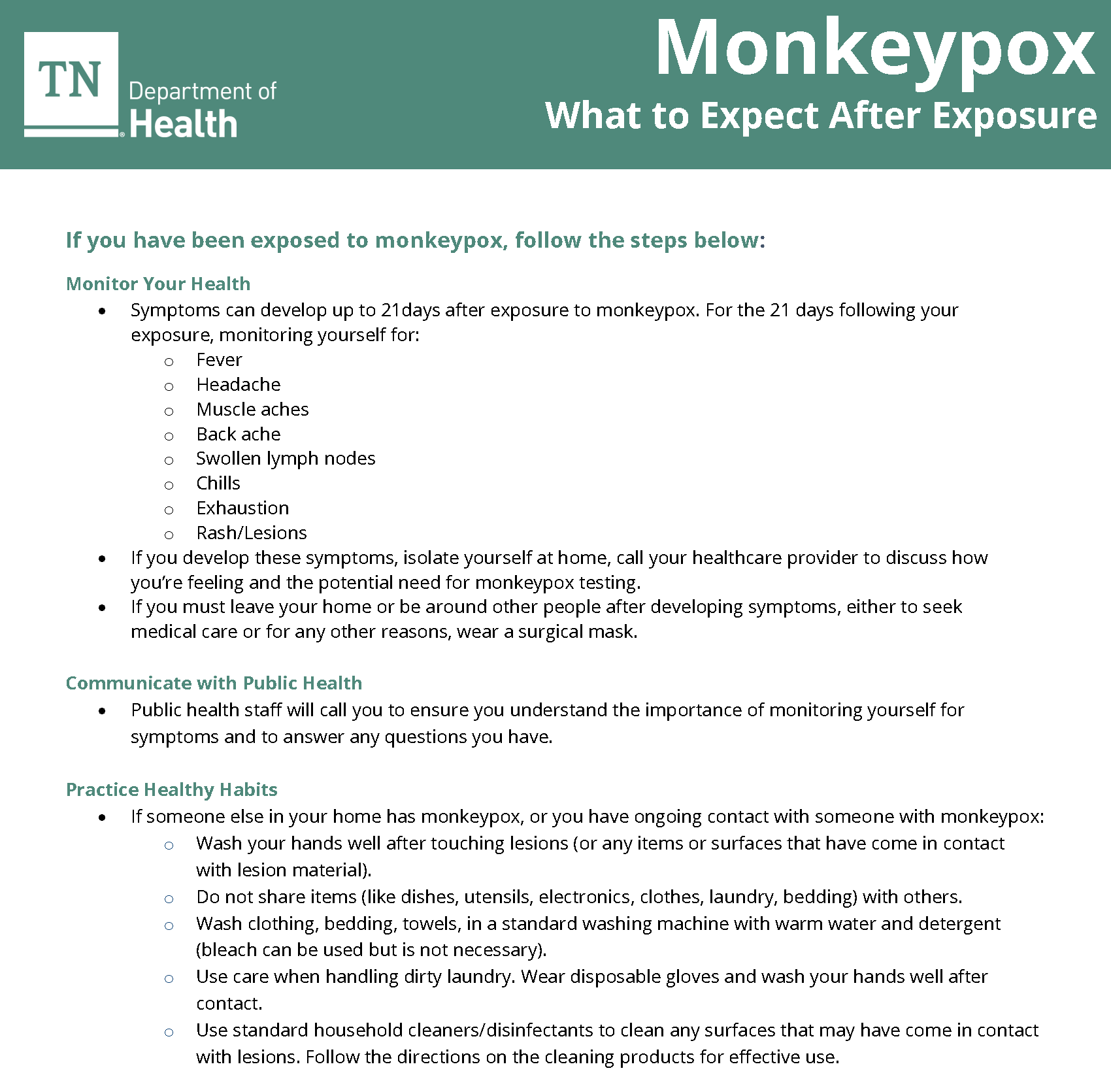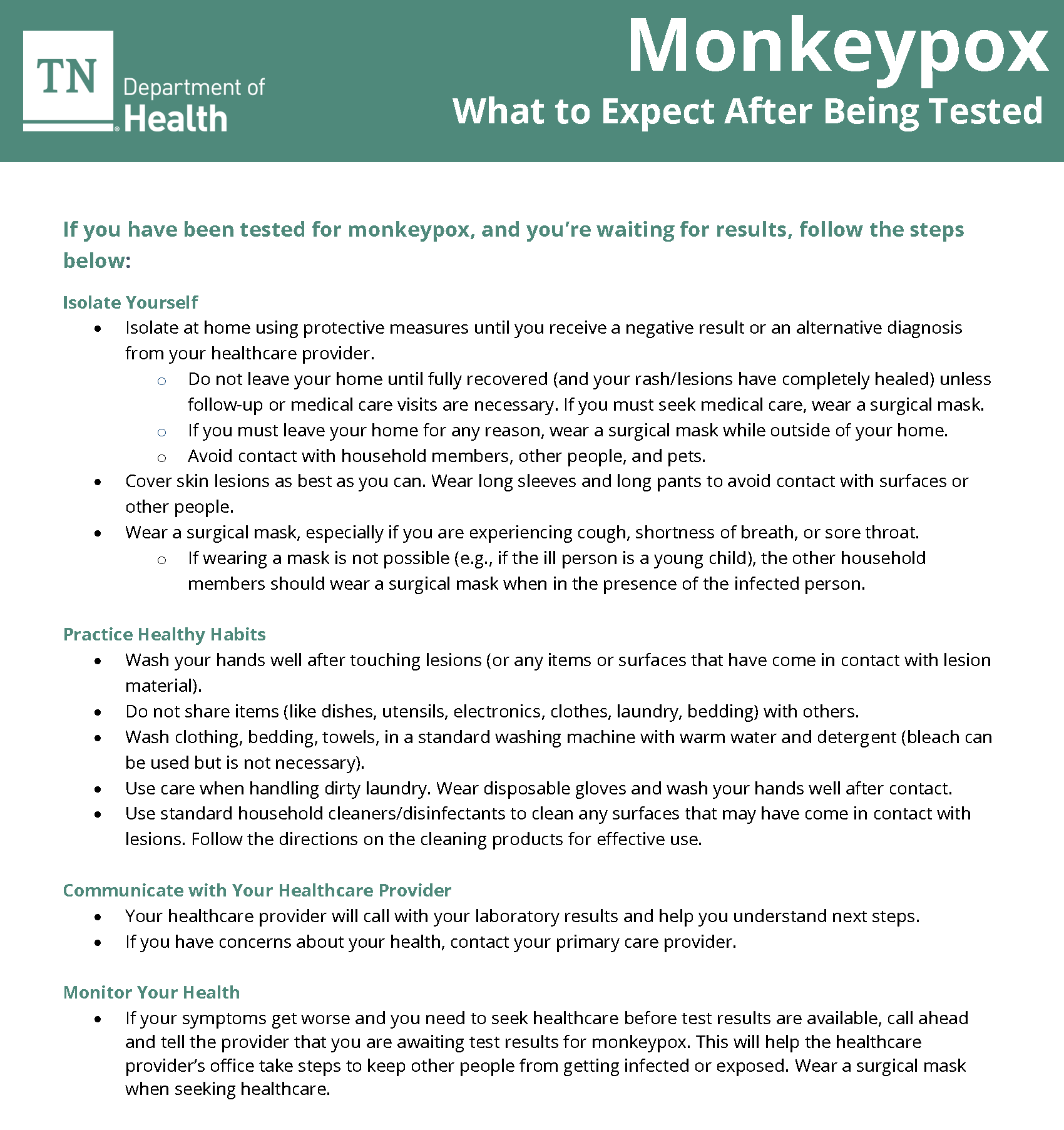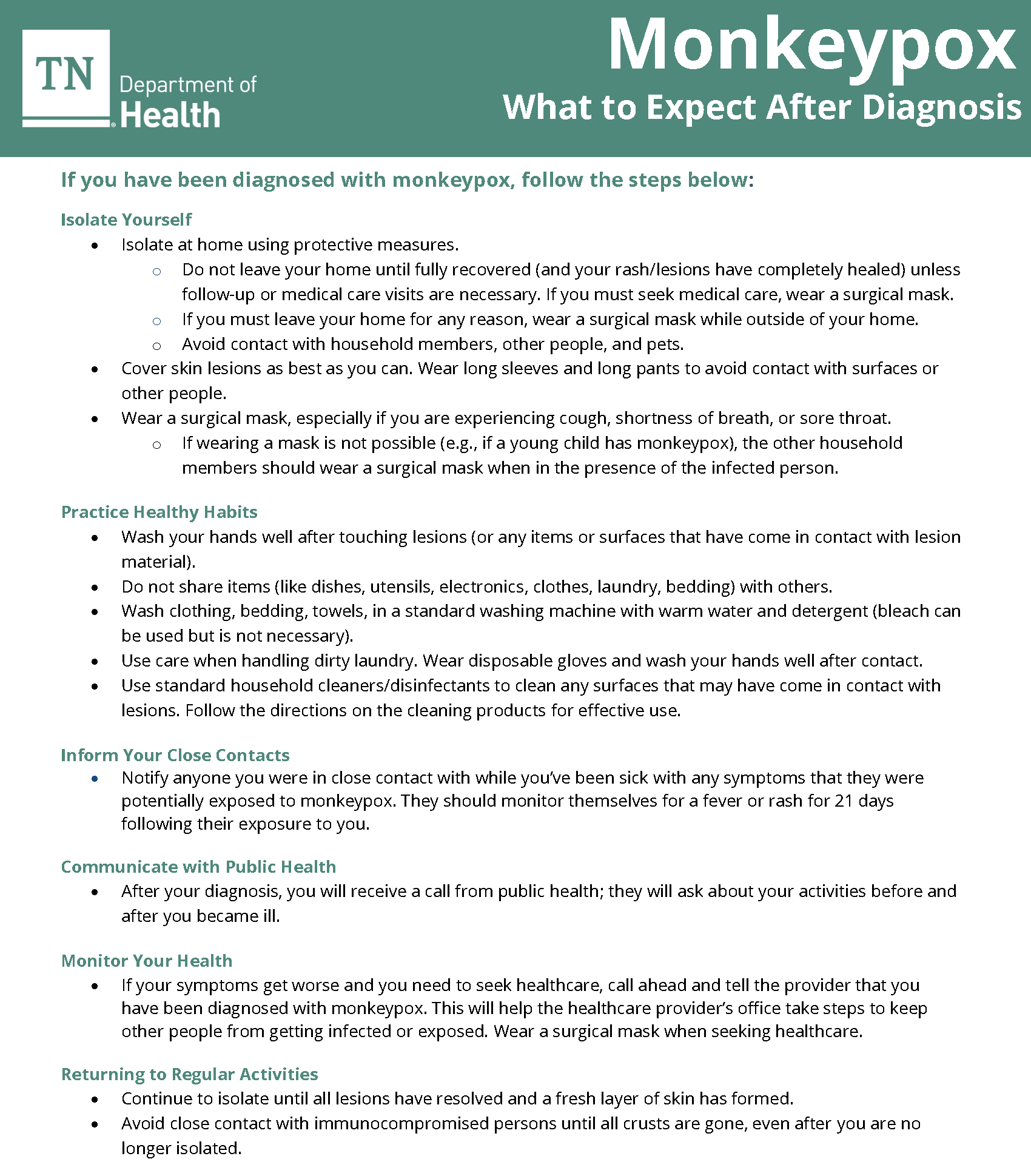Mpox
Mpox (previoiusly known as monkeypox) is an infection caused by the monkeypox virus, and is similar to other poxviruses such as vaccinia, smallpox, and cowpox. Mpox causes signs and symptoms which usually begin within a week but can start 1–21 days after exposure. Symptoms typically last 2–4 weeks but may last longer in someone with a weakened immune system.
Symptoms
Symptoms can include, but are not limited to:
- rash
- fever
- sore throat
- headache
- muscle aches
- back pain
- low energy
- swollen lymph nodes.
For some people, the first symptom of mpox is a rash, while others may have different symptoms first. The rash typically begins as a flat sore that develops into a blister filled with liquid and may be itchy or painful. As the rash heals, the lesions dry up, crust over and fall off. Some people may have one or a few skin lesions and others have hundreds or more.
frequently asked questions
Current evidence suggests that mpox spreads in 3 ways:
- From person-to-person through respiratory secretions or direct contact with infectious skin or lesions.
- From animals to humans through bites or scratches, or during activities such as hunting, skinning, trapping, cooking, playing with carcasses, or eating animals in areas where mpox is endemic.
- Through direct contact with objects, fabrics, and surfaces that have not been disinfected after use by someone with mpox. This includes items like clothing, bedding, towels, fetish gear, or sex toys. Direct contact can also occur through sharps injuries in health care or in community setting such as tattoo parlours.
These five steps can help you protect yourself from getting mpox:
- Get vaccinated if you are at risk for mpox.
- Consider temporarily changing activities that involve close personal contact (such as sex).
- Avoid close, skin-to-skin contact with people who have a rash that looks like mpox and animals that carry the mpox virus.
- Avoid contact with objects and materials that a person with mpox has used.
- Wash your hands often with soap and water, or use an alcohol-based hand sanitizer.
If you have a new or unexplained rash or have other mpox symptoms, especially after potential exposure, you should be evaluated by a health care provider.
- If you have been exposed to mpox at work (and have not already been contacted by Occupational Health) and you develop symptoms, please contact Occupational Health at 615-936-0955.
- If you have been exposed to mpox in the community, please contact your health care provider or the TN Department of Health.
- If you are not sure whether you need evaluation, please contact Occupational Health, your health care provider, or the TN Department of Health.
Only a healthcare provider can order an mpox test. The healthcare provider may take a specimen and send it to a lab for testing or they may send you to a lab for both specimen collection and testing.
- To find out if you qualify for testing, please contact your health care provider or the TN Department of Health.
- If you are an employee, you can contact Occupational Health at 615-936-0955.
- If you are a student, you can contact the Student Health Center at 615-322-2427
Note: If you undergo testing for mpox you must isolate (and not present to work or school) until the test results are in.
Right now, the Mpox vaccine is limited to specific individuals:
- Individuals at risk for occupational exposure e.g.,
- Clinical lab staff who handle mpox specimens;
- Research staff who work with mpox (or other similar viruses) in a research lab
- Individuals with a known higher risk exposure to an individual with mpox
- Certain individuals at high risk for community exposure (e.g,. individuals who are aware that a sexual partner has been diagnosed with mpox, or individuals who have had multiple sexual partners in the last 14 days in an area where mpox is present).
For Employees:
Occupational Health will work to obtain vaccine for those who have an occupational risk or an occupational exposure that requires vaccination. If you have a concern about a community exposure or are considered high risk for exposure, contact the Tennessee Dept of Health Case and Community Support Team at 615-770-6940 to determine if vaccination is right for you.
At this time, the CDC does not advise most healthcare workers to receive the mpox vaccine.
For Students:
Mpox vaccination is available by appointment only at the Student Health Center. To schedule:
- Contact your healthcare provider at the Student Health Center via My Health At Vanderbilt to request an immunization order. Appointments cannot be made until your order is in place, because the dosing depends on health factors that your provider must assess.
- If you do not have a healthcare provider at the Student Health Center, please call 615-322-2427. The patient service specialists will relay your message to the nursing staff, who will assist you in scheduling a brief vaccine consultation appointment.
Related links:


